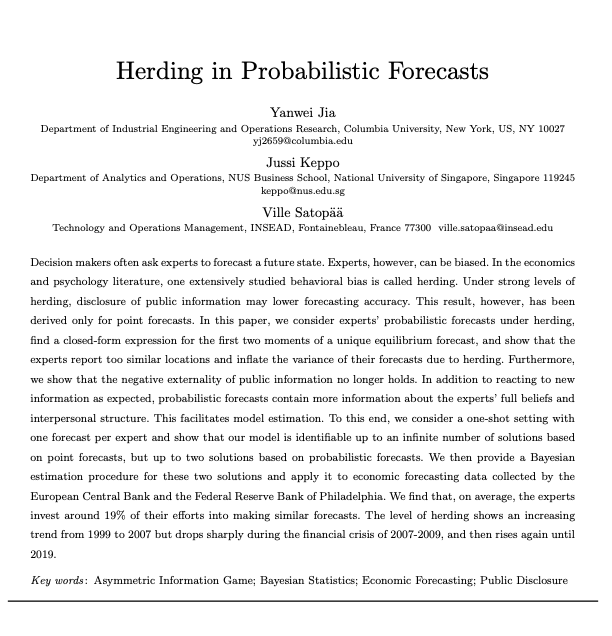Decision makers often ask experts to forecast a future state. Experts, however, can be biased. In the economics and psychology literature, one extensively studied behavioral bias is called herding. Under strong levels of herding, disclosure of public information may lower forecasting accuracy. This result, however, has been derived only for point forecasts. In this paper, we consider experts’ probabilistic forecasts under herding, find a closed-form expression for the first two moments of a unique equilibrium forecast, and show that the experts report too similar locations and inflate the variance of their forecasts due to herding. Furthermore, we show that the negative externality of public information no longer holds. In addition to reacting to new information as expected, probabilistic forecasts contain more information about the experts’ full beliefs and interpersonal structure. This facilitates model estimation. To this end, we consider a one-shot setting with one forecast per expert and show that our model is identifiable up to an infinite number of solutions based on point forecasts, but up to two solutions based on probabilistic forecasts. We then provide a Bayesian estimation procedure for these two solutions and apply it to economic forecasting data collected by the European Central Bank and the Federal Reserve Bank of Philadelphia. We find that, on average, the experts invest around 19% of their efforts into making similar forecasts. The level of herding shows an increasing trend from 1999 to 2007 but drops sharply during the financial crisis of 2007-2009, and then rises again until 2019.


